- Research
- Research Centers
- Journals
- Admission
- Introduction
- Programs
- Application
- Alumni & Giving
- Alumni Club
- Giving
“Transition, Transformation and Transcendence: International Forum on the Olympic Communication and Media Operation in the East Asia (2018-22)” was held on April 23.
The forum, conducted in online and offline settings, was hosted by Beijing Foreign Studies University (BFSU) and organized by the School of International Journalism and Communication as well as the International Sports Communication and Diplomacy Research Center at BFSU.
More than 20 experts and scholars from BFSU, the Beijing Organizing Committee for the 2022 Olympic and Paralympic Winter Games (BOCOG), Xinhua News Agency, Western Sydney University, the University of Alabama, the University of Auckland, Renmin University of China and Beijing Sport University attended the discussions.
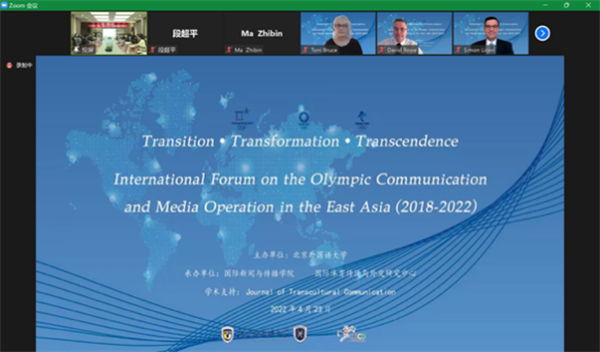
“Transition, Transformation and Transcendence: International Forum on the Olympic Communication and Media Operation in the East Asia (2018-22)” is held on April 23. [Photo/bfsu.edu.cn]
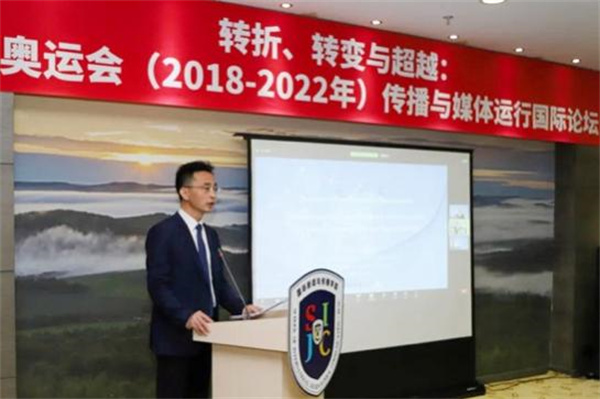
Su Dapeng, deputy Party secretary of the CPC BFSU committee, speaks at the opening ceremony on April 23. [Photo/bfsu.edu.cn]
Su Dapeng, deputy Party secretary of the CPC BFSU committee, said the gathering of professionals in the field of sports following the success of the Beijing 2022 Olympic and Paralympic Winter Games is a rare opportunity.
He said exploring the historical significance of the Winter Olympics from a global perspective is very important.
Su talked about BFSU volunteers’ services during the Games, expounded on the contributions made by the university in spreading Chinese sports culture and its ability to tell Beijing Winter Olympic stories well.
Liu Ying, vice dean of the School of International Journalism and Communication at BFSU, talked about the daily work and contributions of the school and the International Sports Communication and Diplomacy Research Center.
Liu said to bear in mind the big picture of the Winter Olympics: being confident and open, rising to the challenges, and pursuing excellence.
The forum was divided into four sessions, focusing on the communication, media operation, cultural soft power and national image construction of the three Olympic Games held in the East Asia, including the Pyeongchang 2018 Winter Olympics, the Tokyo 2020 Summer Olympics, which was held in 2021, and the Beijing 2022 Winter Olympics.
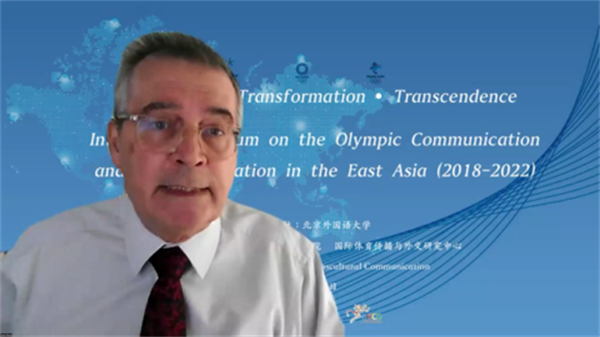
David Rowe, elected fellow of the Academy of the Social Sciences in Australia and the Australian Academy of the Humanities and professor from Western Sydney University, keynotes the forum. [Photo/bfsu.edu.cn]
David Rowe, elected fellow of the Academy of the Social Sciences in Australia and the Australian Academy of the Humanities and professor from Western Sydney University, delivered a keynote speech, and put forward a novel concept of “media-sports-society-political association”.
Rowe analyzed how the media outlets from different countries reported on the three Olympic Games and revealed the uncertainty of their traditional narratives and agenda setting abilities.
Rowe also spoke highly of the theme of the forum.
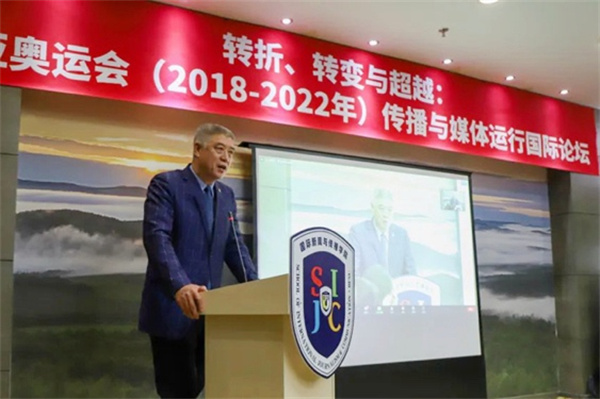
Xu Jicheng, director general of BOCOG's Media Operations Department, delivers a keynote speech at the forum. [Photo/bfsu.edu.cn]
Xu Jicheng, director general of BOCOG's Media Operations Department, gave a new interpretation of the forum’s theme based on his experience in media operation.
Beijing 2022 is so far the Winter Olympics Games with the top-rated audience, the most extensive digital interaction and longest broadcast time, he said.
Despite the impact of the COVID-19 pandemic, the media coverage and the effect of those reports have reached new highs, thanks to the comprehensive application of new technologies such as the 5G-powered 8K ultra-high definition remote transmission, cloud broadcasting platforms and the press plus dedicated network transmission service, according to Xu.
Social media, short videos, live broadcasts and other communication methods have also played an important role, he said, adding that these means will have a far-reaching impact on media in competitions in the future.
Xu said Beijing 2022 showcased the unique contributions of Chinese and East Asian cultures to the Olympic Games.
He called on fellows from the media and academic circles in China and abroad to strengthen relevant research and work together for a shared future.
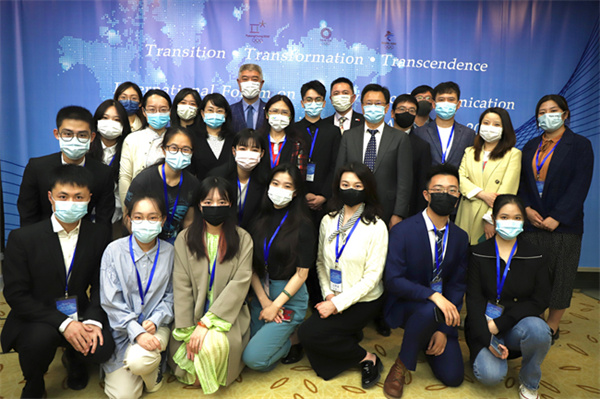
Attendees of the forum gather for a group photo. [Photo/bfsu.edu.cn]
The forum was attended by scholars and media staff members worldwide.